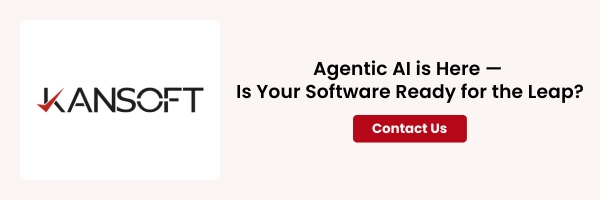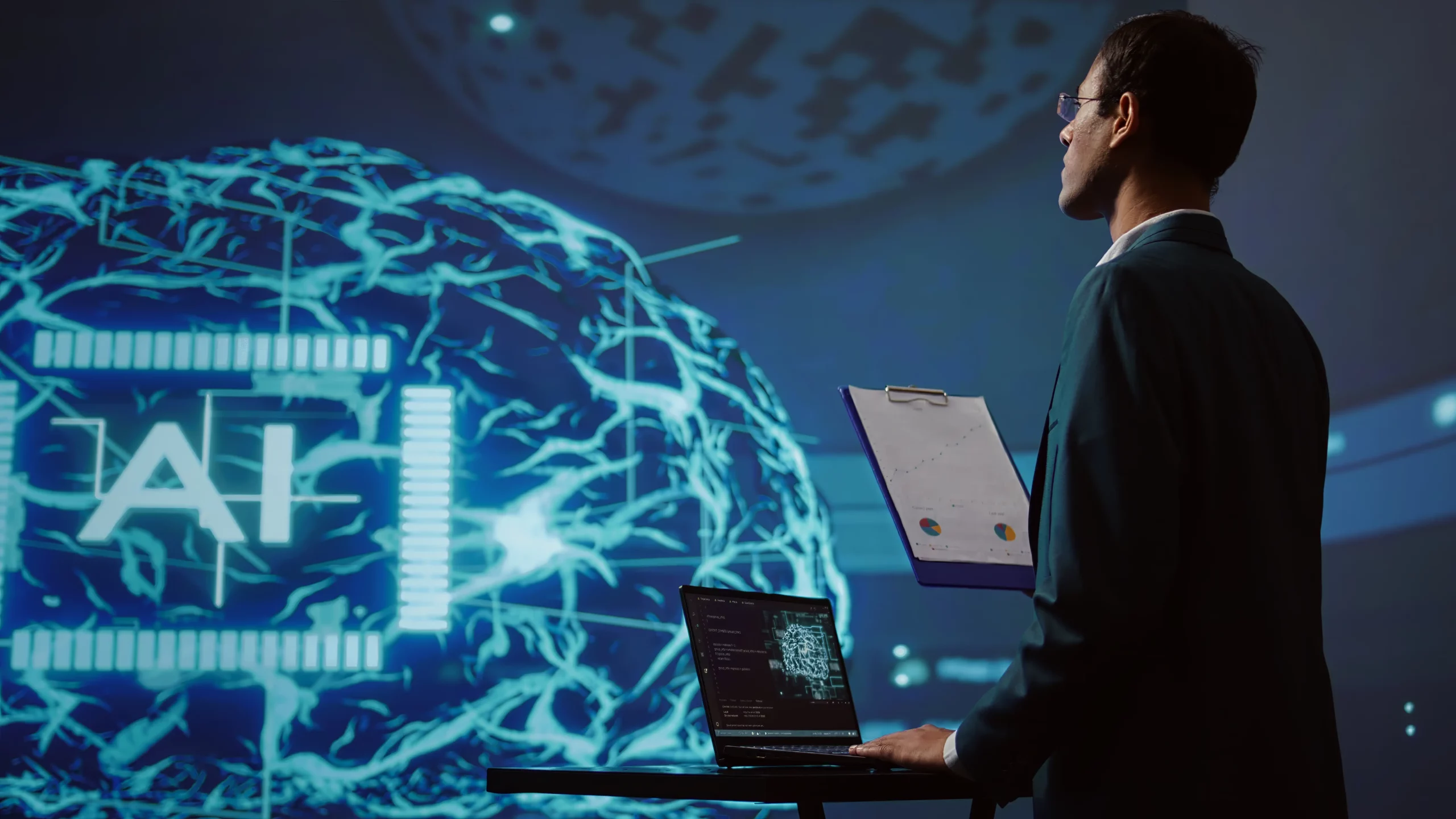In 2025, a paradigm shift is unfolding in how software is developed. At the heart of this change is Agentic AI—an evolution from traditional automation to intelligent agents that can understand goals, make decisions, and act independently. For enterprise software teams, this marks a powerful shift from reactive coding tools to proactive AI co-developers.
In this blog, we explore how Agentic AI in software development is helping transform the software development landscape, where AI agents in software engineering are heading, the emerging landscape of AI coding tools in 2025, and what it all means for technology leaders navigating the future of intelligent code generation.
What is Agentic AI in Software Development?
Agentic AI refers to autonomous agents—AI systems capable of interpreting objectives, making decisions, and taking initiative in dynamic environments. Unlike narrow AI models that require constant human prompts, agentic AI in software development operates more like a team member, capable of planning, prioritizing, and executing development tasks.
According to Gartner’s 2025 Emerging Technologies report, agentic AI is set to redefine enterprise workflows by enabling machines that can learn from interactions, work across toolchains, and align outputs with high-level business goals.
“Agentic AI is not just a tool—it’s an autonomous collaborator in the digital workforce.” — Gartner, Emerging Tech 2025
How Agentic AI is Transforming Enterprise Software Development
1. From Task Automation to Autonomous Contribution
Traditional software development relied on tools that could autocomplete, check syntax, or run tests. Agentic AI goes further by:
- Generating entire features or modules from high-level business requirements.
- Coordinating across CI/CD pipelines to run diagnostics, monitor code quality, and suggest fixes proactively.
- Integrating with repositories to review, test, and commit changes without human intervention.
2. Enhancing Developer Productivity and Team Dynamics
Agentic AI agents help reduce cognitive load on developers by:
- Managing routine tasks like documentation, unit test generation, and code reviews.
- Surfacing contextual insights (e.g., “this module has high bug recurrence”) during development.
- Learning from developer preferences and adapting accordingly.
This lets human developers focus more on creative problem-solving and architectural decisions.
3. Redefining Software Quality and Resilience
With continuous learning and pattern recognition, AI agents can identify vulnerabilities, monitor regressions, and suggest architecture refactoring. This leads to more secure, maintainable, and scalable software.
4. Aligning Software with Business Objectives
Perhaps most importantly, agentic AI can understand business-level goals and KPIs. This allows it to translate those goals into backlog items, prioritize features, or even suggest pivots when customer feedback indicates misalignment.
AI Agents in Software Engineering: Use Cases and Examples
AI agents in software engineering are already being embedded across the SDLC:
- Design Phase: Convert user stories into architecture diagrams and component outlines.
- Coding Phase: Generate boilerplate code, apply design patterns, and auto-refactor legacy code.
- Testing Phase: Write, run, and update unit and integration tests. Flag test cases affected by code changes.
- Deployment Phase: Monitor performance metrics post-release, detect anomalies, and trigger rollbacks if needed.
Companies like GitHub (with Copilot X), Google (with Gemini Code Assist), and Meta (with CodeCompose) are pioneering multi-agent systems that can collaborate across these stages. Kansoftware is also investing in custom agent frameworks that integrate securely within enterprise DevOps environments.
The Landscape of AI Coding Tools in 2025
As of mid-2025, the ecosystem of AI coding tools is expanding rapidly:
- Copilot X now offers goal-driven development, not just code suggestions.
- Replit Ghostwriter includes real-time multi-file navigation and debugging.
- AWS CodeWhisperer has extended into secure code scanning and remediation.
- Kansoftware AgentHub enables enterprise clients to build, deploy, and monitor internal agentic AI tools tailored to their tech stack.
What sets the newest generation apart is their ability to work in agent networks: specialized AIs for frontend, backend, testing, and compliance working in sync.
The Future of Intelligent Code Generation
The long-term impact of intelligent code generation goes beyond productivity. It is about reimagining the software development process:
- Reduced time-to-market through 24/7 autonomous agents.
- Cross-functional integration, where product, design, and engineering share intelligent feedback loops.
- Inclusive development, as non-technical teams can co-create using natural language interfaces.
Yet, as with any technology, thoughtful implementation is key. Governance, explainability, and human oversight must remain central to ensure safety and accountability.
What This Means for Industry Leaders
For CTOs, CIOs, and digital leaders, adopting agentic AI is no longer just about early adoption – it’s a strategic move to:
- Drive agile transformation at scale.
- Ensure engineering resources are focused on innovation, not repetition.
- Build software that continuously adapts to market shifts and user needs.
At Kansoftware, we help enterprises integrate these capabilities responsibly – embedding agentic AI into secure, compliant, and scalable development pipelines.
Conclusion
How agentic AI is transforming enterprise software development is not a trend—it’s a shift in how digital products are conceived and delivered. As AI agents in software engineering continue to evolve and AI coding tools in 2025 redefine team workflows, embracing intelligent code generation is the path forward for future-ready enterprises.
Now is the time to explore how your development processes can evolve – not just with smarter tools, but with autonomous collaborators.



